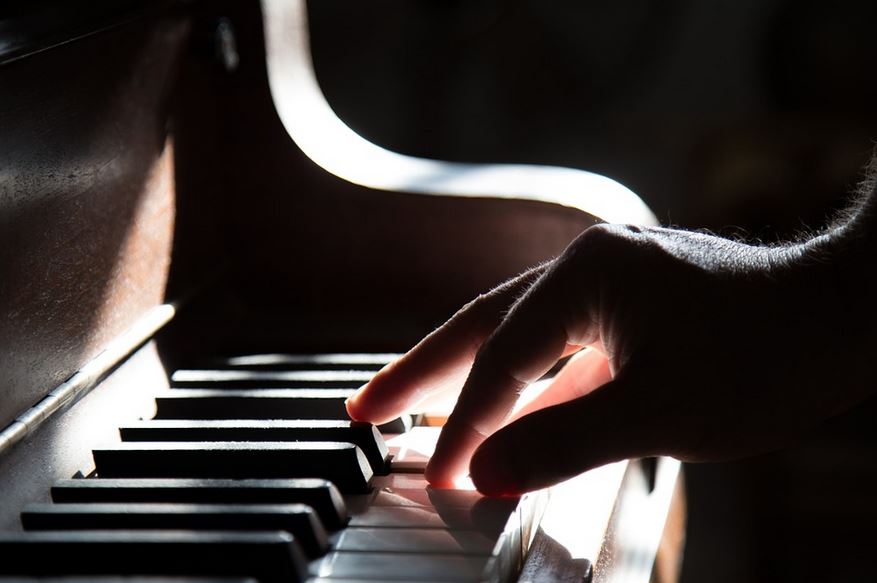
The Mental Game – Part I, What to do
As a student and performer of music, it’s crucial to put the physical time into practicing your craft. We’ve all heard the old adage “Practice makes perfect” and that in order to master something you have to practice it for 10,000 hours. Well, those sayings aren’t quite true. Practice alone doesn’t actually make you a perfect player and 10,000 hours of practice won’t make you a master. Neither of these things are accurate unless you’ve developed a strong “mental game.”
The psychology of learning is absolutely fascinating but far too in depth to comprehensively discuss in this blog. So, what you’ll find here are three steps to developing a strong mental approach to practice that must accompany the physical act of practicing.
First, what is the mental game? In sports, the mental game is “…the study of mind, emotion, and behavior as it relates to performance and activity.” (Afremow, Good to Gold) Surprise, surprise, it’s the same for us as musicians. Our mental game is how we use our mind, emotions, and behavioral patterns (i.e. our learning methods) to produce effective results.
The three steps to an effective mental game are: Learn, plan, perform.
Learn from the Past
This step is using your past experience to adapt your practice routine to maximize practice efficiency. Here’s a hypothetical. Say you’ve learned the first movement of Beethoven’s illustrious Piano Sonata Op. 2 No. 1. You give a GREAT performance that you couldn’t be happier about. How did you achieve that? What steps in your learning process helped you prepare? Did you visualize your music away from the piano? Did you analyze the score harmonically and melodically? Did you solfege? Maybe you went so far as to copy the score by hand (Bach, Beethoven, and Mozart all did it why shouldn’t you?). Draw on that experience to positively reinforce how you approach the learning of new pieces, but with the new pieces try to find a way to make it yet more efficient! Brian Alexander, another sports psychologist, encourages all of his clients to use imagery and journaling as a tool to reinforce positive experience. Write down your steps to learning the Beethoven and analyze them so as to reuse them in the future.
On the other side of that coin, what if you have a less successful performance experience? Well, don’t dwell on the negative but certainly use it as an opportunity to reflect on your preparation process and strategize practice routines that will help ensure more successful performances in the future. Speaking of future, that leads us into the next point…
Plan for the Future
This is my favorite part of this post. Goal oriented practice as a tool for future success. My students know I’m incredibly strict in requiring them to have a goal for everything they do in our lessons. Strategizing your goals begins with understanding your strengths and weaknesses. By the way, weaknesses aren’t bad. They’re just another opportunity for you to improve something and make yourself even more awesome.
Maybe memorizing music isn’t your strongest quality. How can you strategize short-term, medium-term, and long-term goals to help develop your memorization skills? A daily goal to visualize, solfege, and copy two phrases per day of the Beethoven sonata could translate into a medium term goal of memorizing the exposition in two weeks; it could also result in a more physical achievement, such as having 4 hand written copies of the exposition in three weeks. Those medium-term goals could translate into a long-term goal of giving your first performance of the piece memorized for mom and dad in 3 months. Did you achieve your goal? Yes, great move on to another goal that will continue to improve this skill. No, ok how did you do? Self-reflect on what steps you could employ more efficiently next time and create a new strategy. I believe goal-oriented practice is one of the single most important tools in effectively strategizing your practice for future success.
Performing in the Present
This is not just about the black-tie performance you’re giving at Carnegie Hall. This is about your daily performance track in the practice room as well as the formal performances you give. Have you ever heard the phrase “Don’t dwell in the past, live in the present?” Well, there is actually truth to that. Unlike learning from the past, dwelling in the past is a negative mental state in which you psychologically rely on past experience to create self-doubt and anxiety about your future performances and overall worth as a musician. Performing in the present is all about maximizing every moment of your training and performance experience to positively employ learning strategies, clarity of focus, and self-reflection in order to experience personal growth and success. Your daily performances (i.e. the practice room) is where 75% – 80% of your mental energy should be focused – using your current abilities and learning strategies to improve yourself for the future.
These three steps are absolutely crucial to succeeding in any skill development field. “The Inner Game of Tennis,” Jiro Dreams of Sushi, and “The Musician’s Way” are all excellent sources for inspiration for mental game development from sports, culinary arts, and, of course, music fields. The physical act of practicing is only the first step in your growth as a musician, employing a positive mental game is the only way to turn that physical ability to play an instrument into a passionately successful performer. Stay tuned for the final part of this series in which I’ll talk about what negative factors to avoid in your mental game!
Until next time,
Jordan Taylor, DMA (ABD)
www.JordanBTaylor.com
